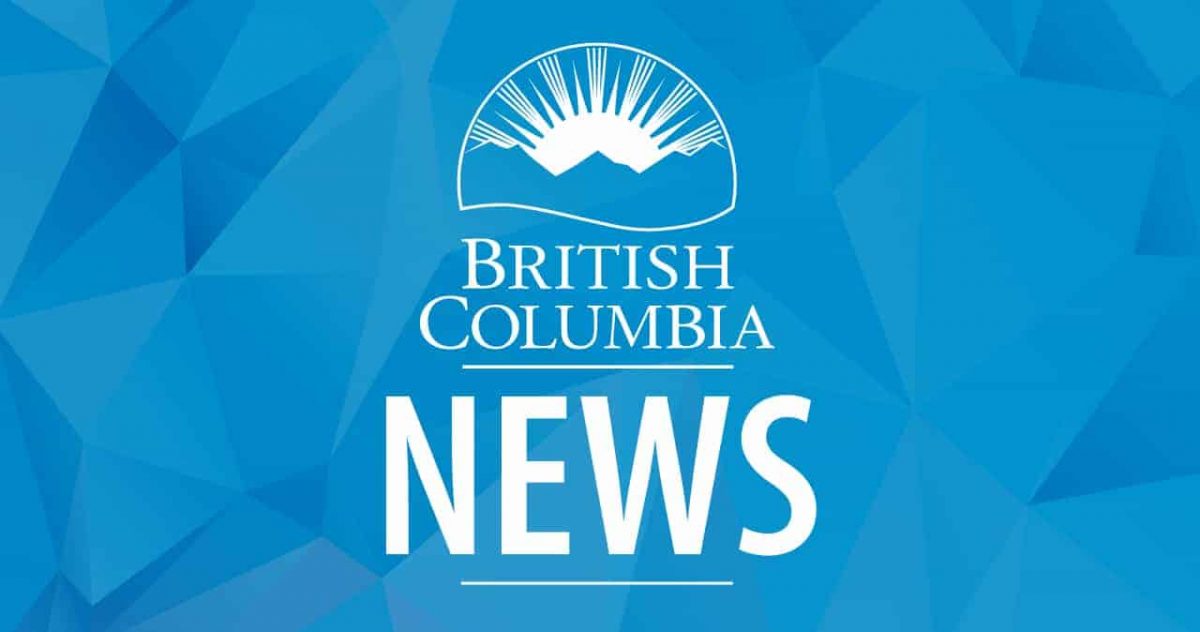
More addiction treatment services coming for people on the Sunshine Coast
Men living on the Sunshine Coast will soon have access to more addiction treatment options with 12 new supportive recovery beds in Powell River.
“Given that there are many pathways into addiction, we need to be there to provide just as many pathways for people to recover,” said Jennifer Whiteside, Minister of Mental Health and Addictions. “This significant increase in treatment beds available will make it easier for people to get the care they need in Powell River and the qathet region so they can remain connected to their support networks on their healing journey.”
Since January 2024, 14 beds opened in Powell River, including detox and supportive-recovery beds. These additional 12 beds continue the Province’s work to build a strong continuum of care for the region. Previously, people struggling with addictions would have to go to Courtenay or further to access detox or supportive-recovery beds.
“The City of Powell River is pleased to partner with Together We Can and Miklat Recovery to open a new facility that will provide additional treatment options for individuals who want to improve their health and wellness,” said Ron Woznow, mayor, Powell River. “Thanks to all partners and supporters in our community who are helping to make this a reality. This facility will build off of the many successes that Miklat Recovery has achieved in Powell River.”
The 12 beds for men will open in a renovated firehall in the coming months. This site is to be operated by Miklat Recovery and Together We Can Drug & Alcohol Recovery & Education Society (Together We Can), funded by the Province and administered by the Canadian Mental Health Association, BC Division (CMHA-BC).
“In partnering with Together We Can, Miklat Recovery is expanding addiction treatment services in the Sunshine Coast,” said Stacy Wilson, executive director, Together We Can. “This collaboration increases rural capacity, enhances community support and expands comprehensive, culturally sensitive, evidence-based care in our community.”
These new beds are part of the Province’s work to address the toxic-drug crisis and expand treatment options so people can access care closer to home with initiatives such as Road to Recovery, which provides seamless care to people through each stage of their recovery journey.
“I’m so grateful to be clean and sober, because the Creator put me on the path to Miklat,” said Stewert Barnes, Indigenous culture lead and support worker at Miklat Recovery. “It has been a blessing to be a part of not only Miklat, but sharing my experiences, strength and hope with the clients. It’s a two-way street being a support worker. The clients help me as much as I help them. I am Stewert, I am a grateful recovering addict and alcoholic.”
The Province has made historic investments to expand access to mental-health and addictions care across B.C., including early intervention and prevention, harm reduction, treatment and recovery services, complex-care housing and more.
Quotes:
Jonny Morris, CEO, CMHA BC –
“We are pleased to support the Province’s implementation of more treatment and recovery beds, a vital step in addressing the urgent need for expanded mental-health and substance-use services in community. This investment demonstrates a strong commitment to improving access to care and support for those in need. We look forward to the positive impact these additional beds will have on the communities well-being.”
Michelle Hanna, director, Coastal Community of Care at Vancouver Coastal Health –
“We are very proud to offer treatment options for people in our community who need them. The beds and support available for people with mental-health and substance-use challenges provides a vital pathway to wellness.”
Quick Facts:
- Detox programs provide medically supported withdrawal management care.
- Supportive-recovery programs provide temporary stays and psychological support for as long as four months in recovery-oriented environments for those waiting for, or recently having completed, treatment or detox programs.
- Since 2016, Powell River and the Sunshine Coast have had the highest and second highest illicit drug-poisoning death rate in the North Shore of Vancouver Coastal Health region, which also includes Bella Coola Valley, Central Coast area, Howe Sound (Sea to Sky), North Vancouver and West Vancouver/Bowen Island.
- In Powell River, the rate reached 76.3 per 100,000 in 2021.
- As of June 2024, there are 3,645 publicly funded adult and youth community substance-use beds around B.C.
- This includes 14 beds open in Powell River; two detox beds at qathet Hospital, operated by Vancouver Coastal Health; and 12 supportive-recovery beds at two sites operated by Miklat Recovery and Together We Can and administered by the CMHA-BC.
Learn More:
Learn about mental-health and substance-use supports in B.C., visit: https://helpstartshere.gov.bc.ca
For more information about Together We Can, visit: https://twcrecoverylife.org
For more information about Miklat Recovery, visit: https://miklatrecovery.ca
